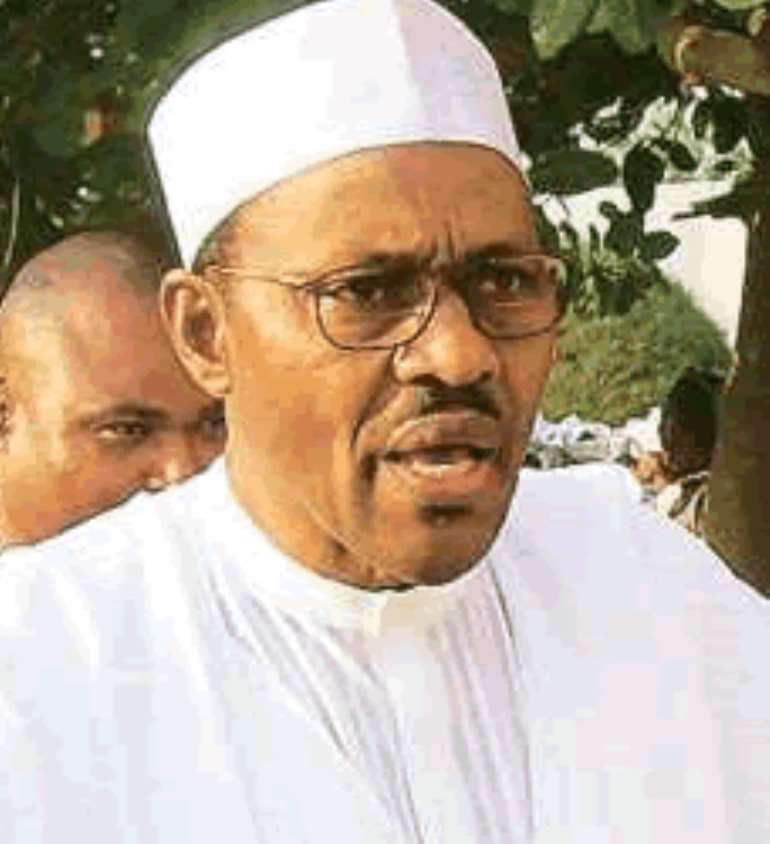Understanding Obiano’s visit to Buhari

Opinion page of the Vanguard newspaper of May 11, 2015, has an article titled Obiano’s infantile promenade and lessons to learn written by one Tony Nwaezeigwe. The writer, presumably an academic, attempted a review of Governor Willie Obiano’s visit to General Muhammadu Buhari, shortly after the latter emerged victorious in the March 28th presidential elections. A note of pathological disappointment, evident in what the writer calls “Governor Obiano’s untypical desperate visit” runs through the entire piece.
Nwaezeigwe seemed worried about the visit for so many reasons. One is that he thought it hurried. Two is that he felt there was no proper consultation. Three and, perhaps, the greatest of his worries is that he perceived a whiff of mendicancy in the visit. By his account, the visit puts at risk everything Ndigbo achieved by aligning politically with the South-South zone. In all, it can be assumed that Nwaezeigwe thought through his write-up and was convinced he expressed popular opinion. However, he is as presumptuous as his claim of working for the Igbo question is impertinent. He fails to observe the limits of his responsibility to Ndigbo if, indeed, he shoulders any. He is also guilty of non-consultation - the same crime for which he holds the Governor in reprimand. A preview of the whole scenario will reveal his piece as a mere prosaic drivel.
First, there is a contest; won and lost. President Jonathan accepts defeat and congratulates the winner. The gloom and doom that hang in the polity disappear, ushering in new realignment in political relationships. Leaders of different political persuasions and tribal affinities, including ex-militants commend or visit the President-elect. No one wants to hang tough more than it is necessary. Accordingly, Obiano visits the President-elect. The visit, like every other, is in the spirit of the time. It is not a lobby visit and has no tinge of servility. Except, perhaps, in the understanding of the writer it does not disrobe Ndigbo of any garb of pride. If anything has the capacity to do so, and robe them in tatters of mendicancy, it is the sit-down-and-look strategy preferred by the writer. The reason is simple. None of the proponents of the curious strategy will abide long by this strategy. The idea will be abandoned sooner than it is adopted.
The writer believes that visiting the President-elect imperils the new relationship between the Southeast and South-south. Truth, however, is that it does not. A new order is emerging and everybody, including Obiano makes effort (without compromising themselves) to identify with it. Employing sentiment on such an issue that requires pragmatism makes the piece a tear-jerker. What, for example, is the need of harping on the ugly side of our history just to remind Ndigbo how actively involved the President-elect was? Except those who choose to live in denial, no Nigerian, including Ndigbo is amnesiac about such matters. Couldn’t it have been more honourable for the writer to admit that choice rather than being ancestrally sanctioned by the “blood of the Igbo people shed before, during and after the 1966 pogrom” influenced his support for the re-election bid of President Jonathan? Is he saying that those who support Buhari have no claim to the same ancestry? Every Igbo man is conscious of his history in Nigeria and is ready to apply himself at the time of need. It is therefore political folly to hold tenaciously to the past and refuse to make the best of the present.
Obiano’s visit to the president-elect is not demeaning. It is mere shuttle diplomacy that hardly vitiates any claim to the writer’s “sit-down-and look strategy”. Hopefully, this strategy (sit-down-and look) is not designed as a proof of commitment of Ndigbo to the inchoate relationship. If the love shown President Jonathan by the Southeast zone since his acting presidency through his first tenure and now is not enough proof, the strategy cannot. Neither would not visiting Buhari be enough proof, however the time.
Overly presumptuous, he wrote that Obiano might have visited the President-elect in order to prevail on him not to vengefully revoke the contract for the second Niger Bridge. But he quickly added that if revocation must come as punishment for not voting Buhari “to God be the Glory”. It is not likely very many people will share this view. Already there is growing disenchantment over the slow pace of work at the site, magnified by its concessional status. The writer wish the Igbo can stand up to the challenges of opposition as did the Yoruba. He also singled out Taraba state for successfully resisting the bandwagon effect in the North and voting the governor of their choice. He seems to think the visit forecloses constructive opposition against the government. That is wrong. Using recent success of the Yoruba as a yardstick for measuring the political actions of the Igbo is also defective. In the history of elections in Nigeria it has been difficult, if not impossible, to defeat a coalition of interest of two major ethnic groups. It is not about the Yoruba losing out in the two successive governments and staying in opposition. No doubt Tinubu worked hard to lead his people to where they are today, but there is no evidence to suggest he never visited both presidents.
The writer may not be wrong to say that “Anambra State symbolizes the gateway to Igbo nationalist spirit and manifest destiny as an ethnic nation”. Anambra state has not failed in this task under past leaders and will not under Governor Obiano.
Ejike Anyaduba
Abatete
